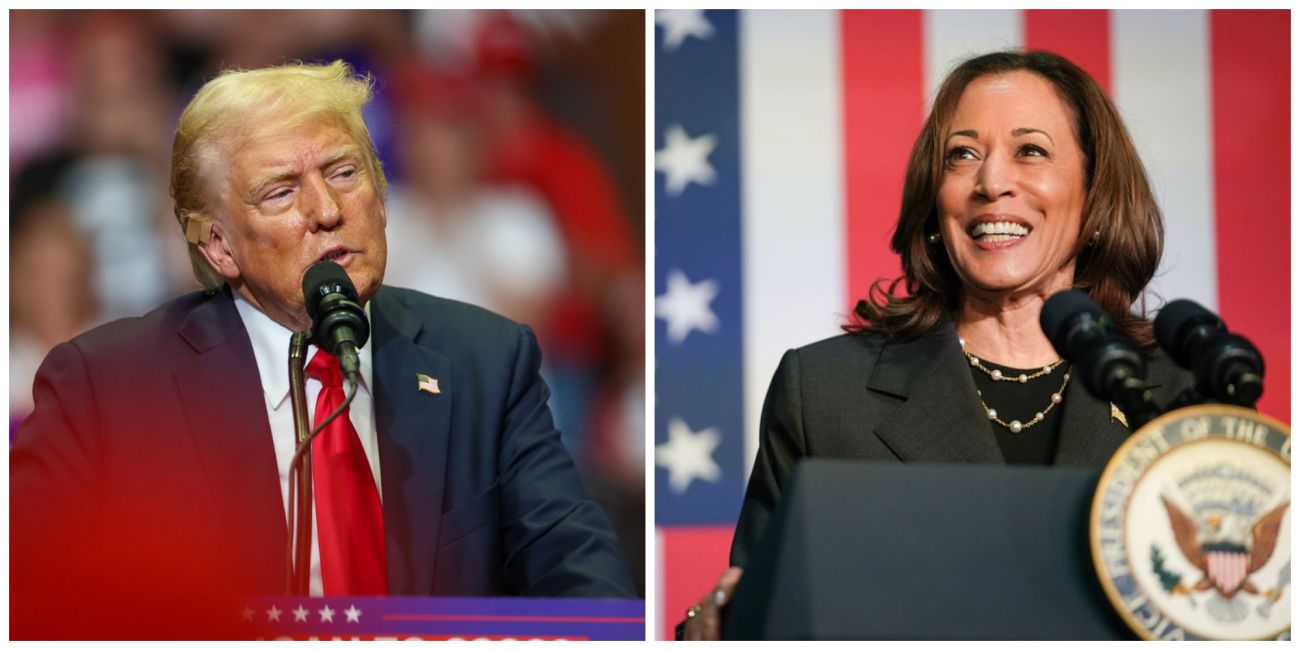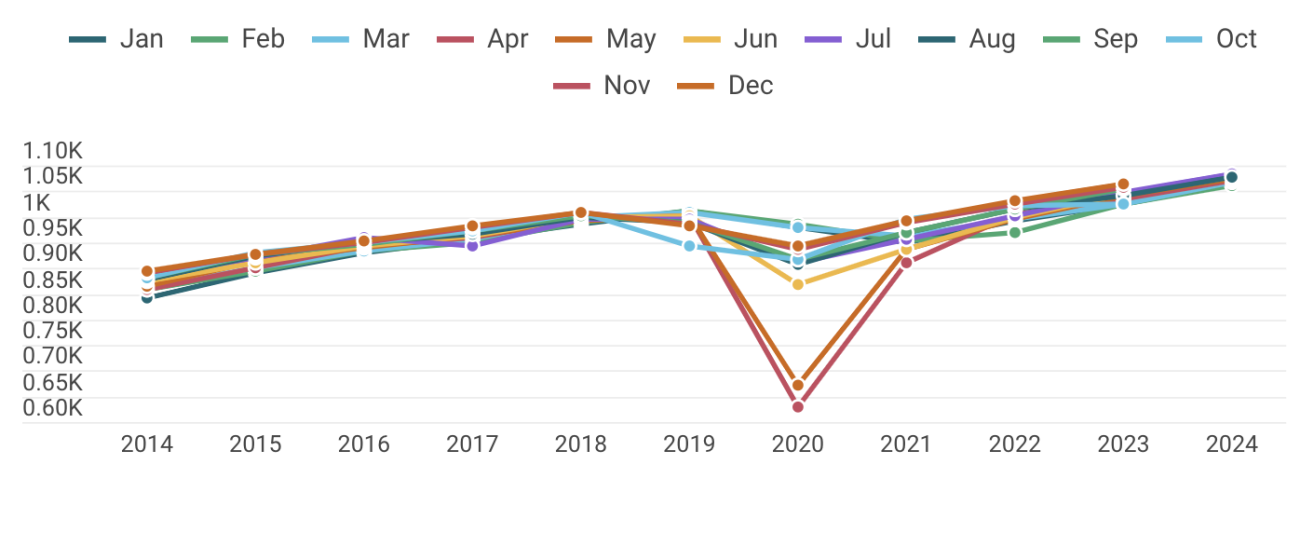Michigan elections FAQ: Where do Trump, Harris stand on auto industry, EVs

- The future of Michigan’s auto industry is a focus of Donald Trump and Kamala Harris’s presidential campaigns
- The Biden-Harris administration has spent heavily to help domestic automakers transition to electric vehicles
- Trump has attacked Biden’s EV subsidies and warned the shift will cost jobs and may ultimately benefit China
As the global automotive industry transitions from gas-fueled engines to electric vehicles, presidential candidates Kamala Harris and Donald Trump are taking different positions on how to promote market growth.
The issue: Automotive manufacturing has been a significant talking point ahead of the 2024 election, with electric vehicles dominating the campaign debate as both Trump and Harris seek to woo blue-collar workers who could help decide the race.
Trump boasts of more than 400,000 manufacturing jobs created during his tenure before COVID-19 forced layoffs, while the Biden-Harris administration can accurately claim creation of more than 700,000 manufacturing jobs post-pandemic.
Related:
- 4 issues to watch as U.S. auto industry changes affect Michigan
- Michigan’s auto industry awaits an EV revolution in flux
- Michigan has spent $1B on EV, battery plants. So far, they’ve created 200 jobs
EV production increased 60% in 2023 to 4.8 million units. Consumer adoption is climbing too — 3.3 million EVs were on the road in 2023, up from 2 million in 2022 – but not as quickly as manufacturers expected.
Car companies made record profits last year, but those have come from traditional vehicles. Despite over $20 billion of announced EV investments and over 18,000 jobs promised in Michigan as of February, several projects were behind schedule.
How it is important to Michigan: The automotive and mobility industry contributes $304 billion to Michigan’s economy every year, according to MichAUTO, the auto-centric division of the Detroit Regional Chamber.
In all, 12% of Michigan’s workforce — 606,000 people — are employed in manufacturing, including about 46,700 auto workers and 115,600 auto parts workers.
Nearly 150,000 are United Auto Workers members and work for Ford, General Motors and Stellantis. The union won historic wage increases following a 2023 strike.
The state is home to 12 assembly plants — 21% of U.S. auto production took place in Michigan in 2022 — and Michigan is vying to stay competitive by offering corporate incentives. As of June 2024, the state’s $1 billion in support for five EV and battery plants had so far generated about 200 jobs, a fraction of the 10,500 expected.
Michigan-based manufacturers are in an EV race with China and Texas-based Tesla, which collectively held nearly 50% of the global market share in 2023.

Where Harris, Democrats stand: Harris and Democrats are big proponents of the shift to electric vehicles, which is key to their environmental policies of lowering pollutants from emissions.
Under the Biden-Harris administration, the EPA set strict emission restrictions on vehicles from 2027-2032 to accelerate EV production. As a candidate in 2020, Harris supported a mandate requiring automakers to build only electric or hydrogen vehicles by 2035, but her current campaign has said she "does not support an electric vehicle mandate” any longer.
Their $740 billion Inflation Reduction Act that Biden signed in 2022 set up a series of clean vehicle tax credits to make EVs more affordable. The electric cars average about $53,000, compared to $48,000 for gas-powered autos.
In July, the U.S. Department of Energy announced $1.7 billion from the act would be going toward reopening 11 shuttered automotive facilities as EV plants in the midwest, including two in Michigan. The administration is also investing heavily in charging stations, setting aside another $623 million this year.
Harris has repeatedly supported the Biden administration’s push toward clean energy during her time in office, including a May announcement of $100 million in funding and resources for smaller auto manufacturers and autoworkers. This reflects her recent campaign pledges of supporting the EV movement.
“This investment will help to keep our auto supply chains here in America, which strengthens America’s economy overall, and keep those jobs here in Detroit,” she said during the announcement.
Where Trump, Republicans stand: Trump and Republicans contend that the federal government is going overboard subsidizing the switch to electric vehicles, but the former president has softened some of his attacks on the industry after conversations with billionaire Tesla CEO Elon Musk earlier this year.
Trump and other Republicans have warned that the shift to EVs may ultimately benefit China, which leads global production on EV batteries and is home to manufacturer BYD, which overtook Tesla as the global leader of EV sales at the end of 2023.
Trump has falsely claimed new EPA emissions standards amount to a mandate requiring EVs by 2030. As president in 2020, he rolled back emissions standards, predicting that would reduce costs for automakers and lower consumer prices.
Trump has repeatedly told autoworkers that federal government mandates will cost them jobs, promising to double tariffs on EVs coming from China. He’s welcomed Chinese companies to build new plants domestically but has said he opposes a Michigan battery plant planned by Gotion Inc.
Trump has courted union workers in Michigan but publicly feuded with United Auto Workers President Shawn Fain after the union endorsed Biden and later Harris for president. Fain should be “fired immediately,” Trump said in July.
Read more:
- Michigan has spent $1B on EV, battery plants. So far, they’ve created 200 jobs
- Feds give $500M to Lansing GM auto plant to switch to EVs | Bridge Michigan
- 4 issues to watch as U.S. auto industry changes affect Michigan
- Michigan’s auto industry awaits an EV revolution in flux
- Fact Check: Trump vs. Harris on U.S. Manufacturing
See what new members are saying about why they donated to Bridge Michigan:
- “In order for this information to be accurate and unbiased it must be underwritten by its readers, not by special interests.” - Larry S.
- “Not many other media sources report on the topics Bridge does.” - Susan B.
- “Your journalism is outstanding and rare these days.” - Mark S.
If you want to ensure the future of nonpartisan, nonprofit Michigan journalism, please become a member today. You, too, will be asked why you donated and maybe we'll feature your quote next time!





